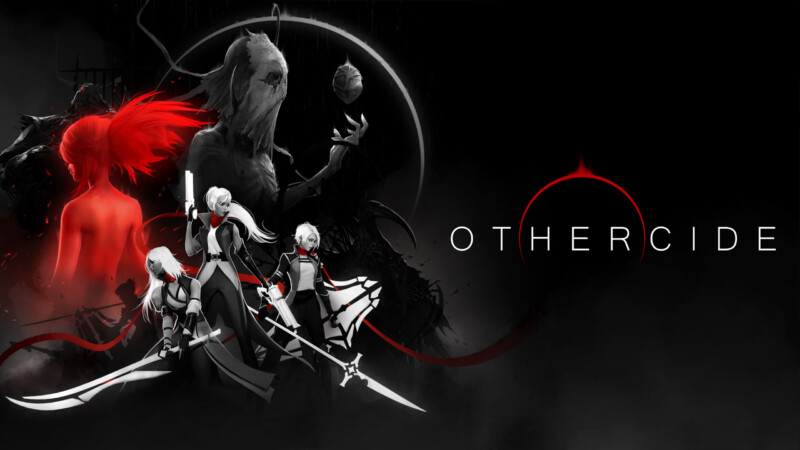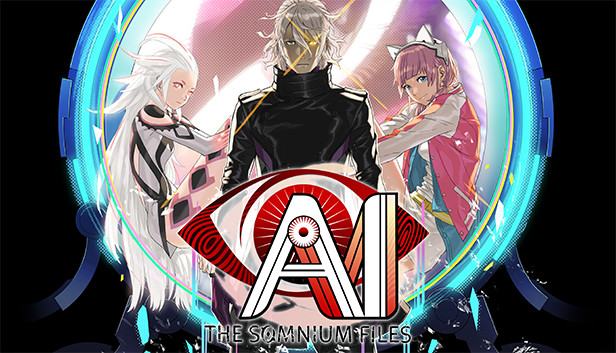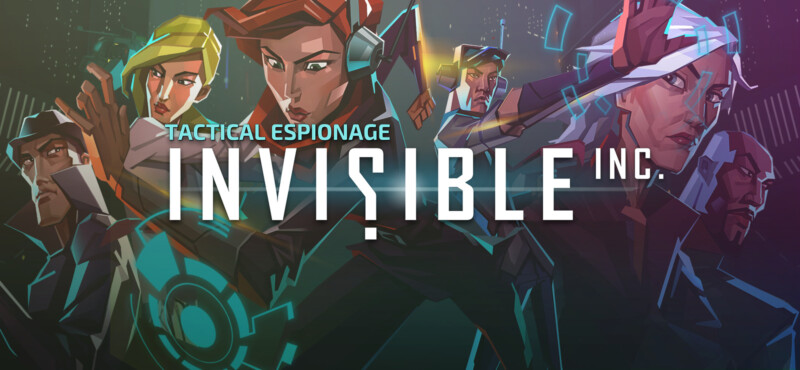The games I have been reviewing thus far have (mostly) been part of a backlog project for 2025, but before Quest and Roam even existed, there were games that ignited a desire to talk about games in the first place.
The full list is long, but since I prefer writing reviews while my experience is still fresh, these games may not get full-fledged reviews anytime soon. Still, they’re worth highlighting.
Tyrion Cuthbert: Attorney of the Arcane

This is the one I’m itching to write a full-fledged review about. I’ve been a fan of the Ace Attorney series, playing all of the mainline games and a couple of its spin-offs, and this game existing makes me wonder why we don’t have more games that take inspiration from it. It’s the definition of copying something that you like, then building upon it.
If the title was not a big giveaway, Tyrion Cuthbert has a lot to pick up from the Ace Attorney games, and in the best way possible. It has the thrilling courtroom battles that Phoenix has, but with a lot more themes that have never been explored in them, such as government corruption, revolutionary ideas (and no, Spirit of Justice doesn’t count), and a much more involved magic system than the spirit mediums ever had. It also has a much bigger overarching storyline than the Ace Attorney games, which mostly consists of self-contained cases, with one overarching case tying everything together at the end.
Sadly, I cannot say I love this game. It has all the makings of a great game—strong characters, compelling themes, a well-developed magic system, and engaging mysteries—but some artistic choices hold it back.
It’s a game that escalates its plot a lot, with the game starting at a simple visit to a farm villager. But all the themes that I mentioned earlier get almost completely dropped at the last parts of the game, giving them no payoff. A couple of plot contrivances and choices in the last 2 cases make me think the mysteries were not worth it at all, even though I was edging on my set to continue.
The romance between Tyrion and Celeste undermines both the game’s themes and their individual arcs so much that it hurts to not go into detail. The prosecutor, Aria Steelwind, a better character than Edgeworth himself, gets done dirty in the latter half of the game.
No other game has made me bounce between “Wow, that’s AMAZING” and “Bruh” so frequently. It makes me eager to see what the devs will do in the future, and I still think this is a great game, but I have a lot of caveats with it.
Othercide

The striking art style hooked me instantly, but Othercide has more than just strong visuals. Othercide is a tactics-based game, with you controlling from 3 to 4 “sisters”: clones of a great warrior whose story gets slowly revealed as you play more games.
It has probably the best gameplay hook that I have ever seen in a tactics game, ever: in which your units never heal unless you specifically sacrifice one of them, and many of your strong abilities require HP. This should make every battle feel tense: your units are stronger than your enemies, but survival requires long-term strategy.
And yes, I say “run” because this is a roguelite. Unfortunately, the one thing that made it so interesting was undercut by an issue I’ve talked about before: meta-progression. At first, new units will only be able to be created at level 1, and they go to level 15, but the game is designed to not be able to fully complete its 5-chapter run in one go, making you reset at one of the game’s “checkpoints”, where you can start with stronger units, creating them at higher levels, and making the rest of the game more trivial.
Despite its flaws, the game delivers an intriguing—if somewhat confusing—narrative through fragmented memories and notes. Themes of abuse and betrayal at fit seamlessly into the game’s oppressive atmosphere, and the tactical gameplay remains engaging thanks to the unique abilities each unit type brings to the battlefield. The bosses are pretty bad, since the design of the game doesn’t lend itself to taking down bosses, but it’s a pretty excellent game despite its flaws. I wish a game with this premise fully committed to it!
AI: The Somnium Files

The next visual novel by Uchikoshi of Zero Escape fame. Don’t be fooled by the serious-looking cover—this is a zany game, filled with eccentric characters and a plot as dense and convoluted as any of Uchikoshi’s previous works.
The game follows Date and his AI companion Aiba, as they investigate a serial killer who removes victims’ eyes before killing them. Thankfully, it boasts much better production values than Zero Time Dilemma, with a stellar English dub, polished character models, and a slick UI that makes the “novel” aspect feel seamless.
It has a pretty unconventional way of telling its story, using Zero Escape’s branching paths, each route spotlighting a well-developed character. Despite the crazy plotlines, it tells a surprisingly heartwarming story about human connection, healing from past wounds, and being hopeful about the future.
It also introduces a unique approach to investigations, letting you access people’s dreams through a machine—the titular “Somniums”. While their actual gameplay is underwhelming, the playable Somniums add a layer of immersion and anticipation to the unfolding mystery that would be hard to replicate outside of gaming.
With a strong cast of characters, great plot, and great production values, AI: The Somnium Files is a niche title for the people willing to suspend their disbelief a generous amount to let itself tell its story.
Invisible, Inc.

No exaggeration—this is the best tactics game I have played. Few games have made me feel this level of tension, especially for a squad-based game where the isn’t to engage, but to avoid combat. It’s Fire Emblem meets Metal Gear Solid in the most glorious way possible.
…Ahem, Invisible, Inc. is a roguelike tactics-based stealth game by Klei Entertainment, of Don’t Starve Together and Crypt of the Necrodancer fame. It tells the story of a espionage team who gets their HQ busted and is now regrouping and recovering its resources to strike back at the all-powerful corporations that control the world.
This is another example of stories working perfectly for roguelikes: you mostly will interact with Central and Monst3r, basically this game’s mission control, which will immerse you in the struggle against opponents who are much more ready to fight you than you are to fight them. The story ends in a painfully unresolved cliffhanger—one that still haunts me to this day. Klei has never done any sequels, and this is almost a decade-old game, so I will probably never get any resolution.
Each of the playable characters also feels distinct enough to warrant it, with you being able to choose a loadout of characters and hacking powers to go into the game, which will, in true roguelike fashion, change as you get offered more options throughout the game.
I wish we got to know the characters better, though. They feel distinct despite limited development, but their limited interactions and the cliffhanger ending leaves them feeling half-baked.
It has three different difficulty settings, making this deep, complex game much more accessible to newcomers, and I can only assume they are training wheels because every game mechanic all comes together in its highest difficulty.
A short review can’t fully capture how impactful every move feels, how every purchase matters, and how every engagement is tense and risky—even with a deterministic combat system. This is truly peak tactical gaming, and if you like tactics or stealth, I cannot recommend this game enough. The worst thing I can say about it is that I hope it had more of it.
Final Thoughts
These four games, while not without flaws, are ones I wholeheartedly recommend to anyone interested in their genres. Each game brings something distinct to its genre—Tyrion Cuthbert continues to build upon a familiar text-based adventure that feels much grander than clicking through menus, Othercide reinvents tactics gameplay with a bold new mechanic, AI: The Somnium Files delivers both meta-twists for Uchikoshi fans and engaging mysteries for newcomers, and Invisible, Inc. is simply peak roguelike gameplay.
Have you played any of these games? Do you agree, disagree, or have a different take? Let’s discuss in the comments!


You should play Professor Layton VS Phoenix Wright if you want another Ace Attorney game that is about more involved magic mechanics than we’re used to with Ace Attorney’s spirit channeling. The game takes place in a medieval town with Witch Trials, where you have to prove who the real witch is. It takes Ace Attorney’s deductive reasoning and leans into the fantastical nature of it all. In the same way that spirit channeling works under specific rules (i.e. only women of the Fey clan can channel a spirit if they know the name and face of the spirit, upon which the medium’s body will transmogrify into that of the spirit’s except for the hair of the medium for the remainder of the channeling, during which the medium is fully unconscious and amnesiac), the cross-over game also uses strict rules for its magic systems and asks you to solve mysteries given those limitations.
Thank you for your recommendation. If these games ever become accessible in PC, such as with a Steam port (where I play the vast majority of my games these days), I’d be more than happy to try them out.
We got The Great Ace Attorney and Investigations 2, so it’s definitely possible!